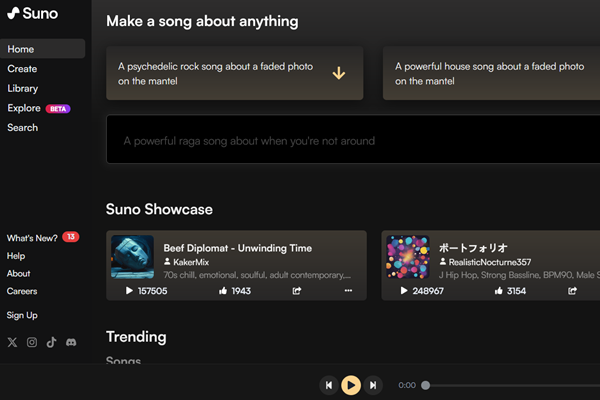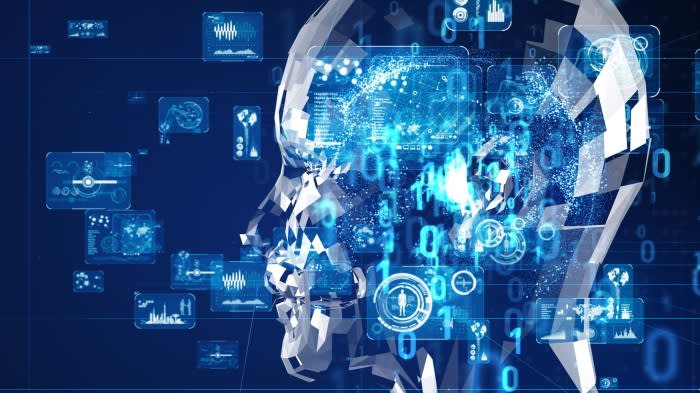Generative AI Music Startup Suno Raises $125M

Generative AI music production startup Suno has raised $125 million in a Series B funding round led by Lightspeed Venture Partners. Suno offers a platform for creating songs, including both instrumental and lyrical elements, from text prompts and other user input.
Suno AI
Suno’s technology can generate complete musical compositions, including lyrics, instruments, and vocals, from basic text prompts requiring no musical ability. Since its launch eight months ago, Suno has attracted a broad mix of amateur and professional musicians, including Grammy winners. The company boasts that more than 10 million people have at least tried out Suno’s platform.
“We started Suno to build a future where anyone can make music. To help people rediscover the joy of play and exploration we had as kids. Technology is a means to that end, and today’s state-of-the-art creates the potential for a flourishing of new sounds, new styles, and new artists in a way we’ve always dreamt about,” Suno CEO Mikey Shulman explained in a blog post. “We’ve seen producers crate digging, friends exchanging memes and streamers co-creating songs with stadium-sized audiences. We’ve helped an artist who lost his voice bring his lyrics back to life again after decades on the sidelines. We’ve seen teachers ignite their students’ imaginations by transforming lessons into lyrics and stories into songs. Just this past weekend, we received heartwarming stories of mothers moved to tears by songs their loved ones created for them with a little help from Suno.”
Genrative AI Music Rush
The new funding round included several venture capital firms along with Lightspeed, as well as notable names in AI like former GitHub CEO Nat Friedman and former AI lead at Apple Daniel Gross. The interest reflects the rapidly growing interest, as well as controversy around generative AI and music. Suno’s tech drew Microsoft’s eye and led to a partnership that augments the Microsoft Copilot generative AI assistant with Suno’s synthetic music engine. Other tech giants are pursuing their own related projects. Meta has its own generative AI music and sound model named AudioCraft that can transform a text prompt into any sound by melding Meta’s text-to-music model, MusicGen, and text-to-natural-sound tool AudioGen. Meanwhile, Google’s MusicLM generative AI music composer has only been glimpsed in a few demonstrations as it is supposedly too good to be released without concern about copyright infringement.
There are also plenty of other startups in the space. For instance, generative AI music startup Udio recently raised $10 million, while synthetic audio startup Riffusion went from an experiment in turning text into music to raising $4 million. There’s also Stability AI’s new Stable Audio 2 text-to-music model and Voicemod’s synthetic song generator, which matches submitted lyrics to a selection of popular songs and AI voices.
Ethical and legal debates are continually clashing with new generative AI music stories. More than 200 professional artists and bands, including Pearl Jam and Billie Eilish, signed an open letter demanding AI companies stop using their music to train models. There’s also pending legislation to give artists more control over any AI voice clones or musical style mimics. Streaming service Deezer is working on building AI tools to detect and remove deepfake singers and synthetically generated songs from its platform. At the same time, Google and Universal Music Group signed a preliminary deal to license artists’ voices and music for AI projects and voice clones.
That doesn’t stop deepfake creator Ghostwriter from going viral with multiple hits of synthetic songs, and music producer and artist Timbaland shared a sample of a song featuring a deepfake voice of the Notorious BIG before pausing work on it after some backlash from fans of the deceased rapper. Meanwhile, musical artist Grimes has gone so far as to offer 50% of the royalties on any AI-generated song that uses her voice. Holly Herndon outright offers a free synthetic version of her voice to make music with called Holly+, and the musical group YACHT trained an AI model to write an entire album called “Chain Tripping.”
Follow @voicebotaiFollow @erichschwartz
Generative AI Music Startup Udio Come Out of Stealth With $10M and Song-Writing App



